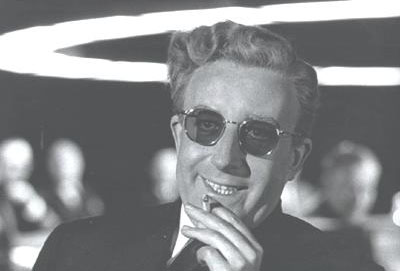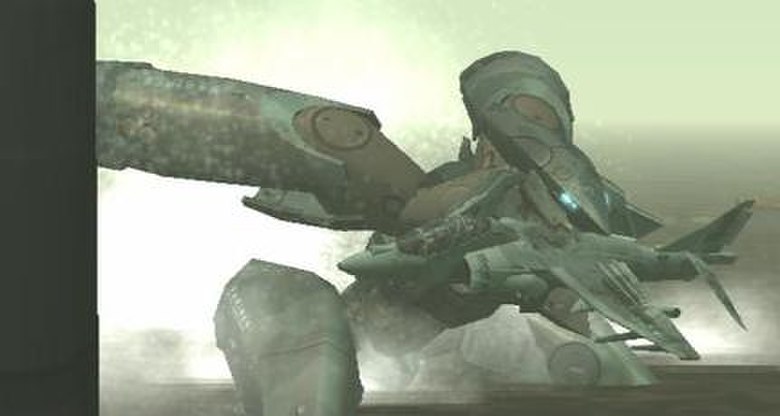TrailerCues
Sidekick
- Joined
- Jul 10, 2006
- Messages
- 2,536
- Reaction score
- 0
- Points
- 31
The head of the U.N. nuclear agency warned Monday that as many as 30 countries could soon have technology that would let them produce atomic weapons "in a very short time," joining the nine states known or suspected to have such arms.
Speaking at a conference on tightening controls against nuclear proliferation, Mohamed ElBaradei said more nations are "hedging their bets" by developing technology that is at the core of peaceful nuclear energy programs but could quickly be switched to making weapons.
ElBaradei, chief of the International Atomic Energy Agency, called them "virtual new weapons states."
The warning came amid heightened fears that North Korea's nuclear test
explosion and Iran's defiance of a U.N. Security Council demand that it suspend uranium enrichment could spark a new arms race, particularly among Asian and Middle Eastern states that feel threatened.
ElBaradei did not single out any country in his warning, but was clearly alluding to Iran and other nations that are working to develop uranium enrichment capability, such as Brazil.
Other nations, including Australia, Argentina and South Africa, have recently announced that they are considering developing enrichment programs to be able to sell fuel to states that want to generate electricity with nuclear reactors.
Canada, Germany, Sweden, Belgium, Switzerland, Taiwan, Spain, Hungary, the Czech Republic, Slovakia and Lithuania are among nations that either have the means to produce weapons-grade uranium if they chose, could quickly build such technology, or could use plutonium waste for weaponization.
All are committed non-nuclear weapons states, and no one has suggested they want to use their programs for arms.
Japan also says it has no plans to develop atomic weapons, but it could make them at short notice by processing tons of plutonium left over from running its nuclear reactors.
South Korea also has spent reactor fuel and was found a few years ago to have conducted small-scale secret experiments on making highly enriched uranium that would be usable in warheads.
Other countries considering developing nuclear programs in the near future are Egypt, Bangladesh, Ghana, Indonesia, Jordan, Namibia, Moldova, Nigeria, Poland, Thailand, Turkey, Vietnam and Yemen, U.N. officials say.
There are five formally declared nuclear weapons states -- the United States, Russia, China, France and Britain -- and four others are known or thought to have such arms -- India, Pakistan, Israel and now North Korea.
North Korea developed its capacities from what it had portrayed as a peaceful nuclear energy program, and there are widespread suspicions Iran may be trying to obtain arms through its enrichment program, despite
Tehran's insistence it seeks only to produce fuel for reactors to generate electricity.
North Korea's nuclear weapon test a week ago sparked widespread condemnation and led the Security Council to agree on broad sanctions. On Iran, the council plans this week to discuss possible selective penalties for
Tehran ignoring its demand to stop enrichment by Aug. 31.
Much of ElBaradei's comments were directed at the potential for misuse of uranium enrichment, which can generate both low-enriched, reactor-grade uranium and highly enriched material for nuclear bombs.
"The knowledge is out of the tube ... both for peaceful purpose and unfortunately also for not peaceful purposes," ElBaradei said.
"It's becoming fashionable for countries to try to look into possibilities of shielding themselves ... through the possibility of nuclear weapons," he said, adding: "Another 20 or 30 would have the capacity to develop nuclear weapons in a very short time."
Indirectly criticizing nuclear weapons states, ElBaradei said it was illogical for them to maintain their atomic arsenals while urging others not to acquire such arms.
He also obliquely took some of them to task for not signing or ratifying the Comprehensive Test Ban Treaty, suggesting their endorsement of the 1996 pact "would have changed the behavior of North Korea, maybe."
The treaty, which prohibits all nuclear explosions, will not take effect until it has been ratified by 44 states that possess either nuclear reactors for power-generation or research. So far 34 have ratified it. Holdouts include the U.S., China, India, Pakistan, Israel and North Korea.
ElBaradei said more money and international commitment are needed for his agency's verification efforts, describing the $120 million annually budgeted as "a drop in the ocean."
"It's important that the system continues to be ahead of the game," he said. "We cannot continue to do business as usual."
http://articles.news.aol.com/news/_a/thirty-more-countries-could-get-nukes/20061016135709990002
Speaking at a conference on tightening controls against nuclear proliferation, Mohamed ElBaradei said more nations are "hedging their bets" by developing technology that is at the core of peaceful nuclear energy programs but could quickly be switched to making weapons.
ElBaradei, chief of the International Atomic Energy Agency, called them "virtual new weapons states."
The warning came amid heightened fears that North Korea's nuclear test
explosion and Iran's defiance of a U.N. Security Council demand that it suspend uranium enrichment could spark a new arms race, particularly among Asian and Middle Eastern states that feel threatened.
ElBaradei did not single out any country in his warning, but was clearly alluding to Iran and other nations that are working to develop uranium enrichment capability, such as Brazil.
Other nations, including Australia, Argentina and South Africa, have recently announced that they are considering developing enrichment programs to be able to sell fuel to states that want to generate electricity with nuclear reactors.
Canada, Germany, Sweden, Belgium, Switzerland, Taiwan, Spain, Hungary, the Czech Republic, Slovakia and Lithuania are among nations that either have the means to produce weapons-grade uranium if they chose, could quickly build such technology, or could use plutonium waste for weaponization.
All are committed non-nuclear weapons states, and no one has suggested they want to use their programs for arms.
Japan also says it has no plans to develop atomic weapons, but it could make them at short notice by processing tons of plutonium left over from running its nuclear reactors.
South Korea also has spent reactor fuel and was found a few years ago to have conducted small-scale secret experiments on making highly enriched uranium that would be usable in warheads.
Other countries considering developing nuclear programs in the near future are Egypt, Bangladesh, Ghana, Indonesia, Jordan, Namibia, Moldova, Nigeria, Poland, Thailand, Turkey, Vietnam and Yemen, U.N. officials say.
There are five formally declared nuclear weapons states -- the United States, Russia, China, France and Britain -- and four others are known or thought to have such arms -- India, Pakistan, Israel and now North Korea.
North Korea developed its capacities from what it had portrayed as a peaceful nuclear energy program, and there are widespread suspicions Iran may be trying to obtain arms through its enrichment program, despite
Tehran's insistence it seeks only to produce fuel for reactors to generate electricity.
North Korea's nuclear weapon test a week ago sparked widespread condemnation and led the Security Council to agree on broad sanctions. On Iran, the council plans this week to discuss possible selective penalties for
Tehran ignoring its demand to stop enrichment by Aug. 31.
Much of ElBaradei's comments were directed at the potential for misuse of uranium enrichment, which can generate both low-enriched, reactor-grade uranium and highly enriched material for nuclear bombs.
"The knowledge is out of the tube ... both for peaceful purpose and unfortunately also for not peaceful purposes," ElBaradei said.
"It's becoming fashionable for countries to try to look into possibilities of shielding themselves ... through the possibility of nuclear weapons," he said, adding: "Another 20 or 30 would have the capacity to develop nuclear weapons in a very short time."
Indirectly criticizing nuclear weapons states, ElBaradei said it was illogical for them to maintain their atomic arsenals while urging others not to acquire such arms.
He also obliquely took some of them to task for not signing or ratifying the Comprehensive Test Ban Treaty, suggesting their endorsement of the 1996 pact "would have changed the behavior of North Korea, maybe."
The treaty, which prohibits all nuclear explosions, will not take effect until it has been ratified by 44 states that possess either nuclear reactors for power-generation or research. So far 34 have ratified it. Holdouts include the U.S., China, India, Pakistan, Israel and North Korea.
ElBaradei said more money and international commitment are needed for his agency's verification efforts, describing the $120 million annually budgeted as "a drop in the ocean."
"It's important that the system continues to be ahead of the game," he said. "We cannot continue to do business as usual."
http://articles.news.aol.com/news/_a/thirty-more-countries-could-get-nukes/20061016135709990002



 t:
t:


